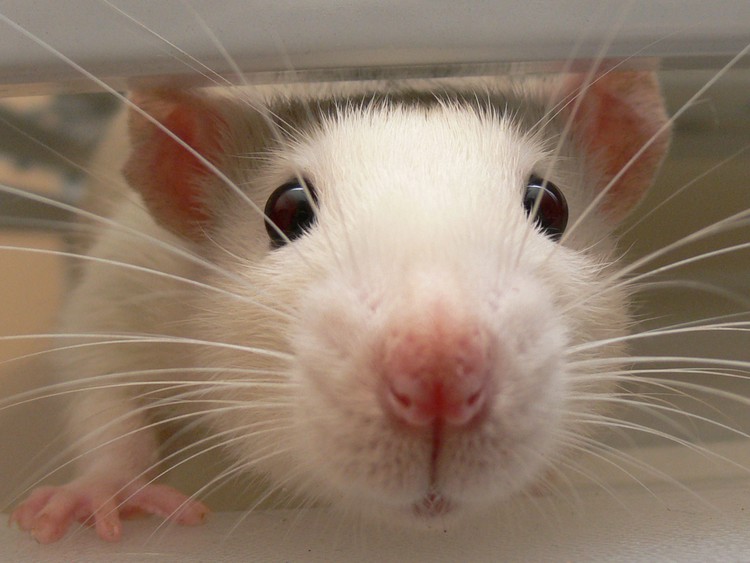Killing rats: a clash of values
NSPCA and city’s residents disagree on how to do pest control
About five years ago, reports started circulating in Cape Town about a growing rat problem. People, especially in low-income areas like Khayelitsha, complained about rats eating their food, damaging their possessions and biting them at night. Rats were seen in greater numbers in the city centre and the Western Cape Premier, Helen Zille, was bitten on her toe one morning when collecting her newspaper. Perhaps coincidentally, the City Council allocated more money to rodent control.
Like most cities in the world, the City of Cape Town relies mainly on poison when controlling rats. But rat poison is also dangerous to people (especially children who ingest it accidentally), pets and animals such as owls that can die after eating poisoned rats.
In 2015, Khayelitsha Environmental Health (EH) (a municipality unit) tried to shift away from poison by running a public works program (PWP) in which unemployed people were hired to set cage traps for rats inside people’s homes. This project proved popular but was halted after the South African National Council for Societies for the Prevention of Cruelty to Animals (NSPCA) objected because the rats were subsequently drowned. The PWP resorted to setting poisoned bait in people’s homes instead.
Death by drowning is no doubt a terrifying way to die, and it takes several minutes to drown a rat. Yet death from rat poison is also cruel and a poisoned rat can take days to die – which is why the NSPCA itself is opposed to the use of poison, including against pests. It is likely that death by poisoning is actually worse for the rat than death by drowning – and in this respect, the NSPCA’s action against the PWP can be seen as something of an own goal. But for the NSPCA it is unacceptable to replace one cruel method (poison) with another cruel and illegal method (drowning). For the EH, the NSPCA’s position failed to grapple with the limited tools they had at their disposal to deal with rats – or the demands from people living in the area for assistance in dealing with rats.
In 2017, University of Cape Town (UCT) researchers ran a survey in Site C, Khayelitsha, asking people about their experience of rats and what they thought about the drowning and poisoning of rats. It found that most households reported serious rodent infestation and that people agreed that workers should be allowed to trap and drown rats. Those who said they were concerned about rat poison killing other animals like cats and owls were especially likely to support the cage-trapping and drowning of rats. This indicates strong support for the EH’s approach in the area. Those who believed that drowning was painful for the rat were less likely to agree with cage-trapping and drowning (suggesting support for the NSPCA’s position) but this was very much a minority position.
Despite the clash of values, there was some middle ground in that both sides accepted that death by poison and drowning was cruel. The EH continued its search for poison-free solutions, even considering a novel proposal to transport the captured rats to a raptor rehabilitation centre where they could be euthanized by CO2 gas and fed to the raptors. This idea, which appeared on the face of it to be doubly good for conservation (poison free and turning rats into food for raptors), unfortunately proved impractical and with animal welfare concerns of its own (notably the stress for the rats of being caged and transported). Yet it is interesting that this proposal was seriously entertained and is indicative of the EH’s commitment to finding poison-free and more humane ways of dealing with rats.
The NSPCA is also making an effort to deal with the problem. UCT researchers were told that “The Cape of Good Hope SPCA is working towards a practical solution in finding methods to euthanize large numbers of captured rodents in an attempt to ensure animal welfare is maintained, thus assisting the community members of Khayelitsha.” Hopefully this project will bear fruit. Ultimately, though, the best way of dealing with rodent infestation is to reduce the supply of their food by having better waste removal services, and improving human housing.
The UCT research is available here: http://www.cssr.uct.ac.za/cssr/pub/wp/410
Support independent journalism
Donate using Payfast

Don't miss out on the latest news
We respect your privacy, and promise we won't spam you.
Next: How we’re fighting antimicrobial resistance in South Africa
Previous: Corruption Watch says CPS must pay back R317 million
Letters
Dear Editor
The Animal Anti-Cruelty legislation (Animal Protection Act 71 of 1962) exempts rats and in fact all rodents from protection. Rats in particular may be killed when they pose a health hazard, or cause damage to property. Putting the "rights" of an introduced pest species before the welfare of people is absurd.
The fact that rodent-control has stopped because we may be "stressing" a rat is beyond normal and logical thinking. In effect - we are allowing diseases and property damage to proliferate because of "rat-rights"
Dear Editor
I live in Khayelitsha Cape Town. We have been trying so hard to get rid of the rats that are running around our house hold, you get rid of two then three pop up it is so bad that we at a point of not knowing what to do no more. We seriously I need of help we don't know who to speak to about the issue. As I write this there are about three big ones in the house, if anyone can help or know where I can go to get help please help.
© 2018 GroundUp. 
This article is licensed under a Creative Commons Attribution-NoDerivatives 4.0 International License.
You may republish this article, so long as you credit the authors and GroundUp, and do not change the text. Please include a link back to the original article.

